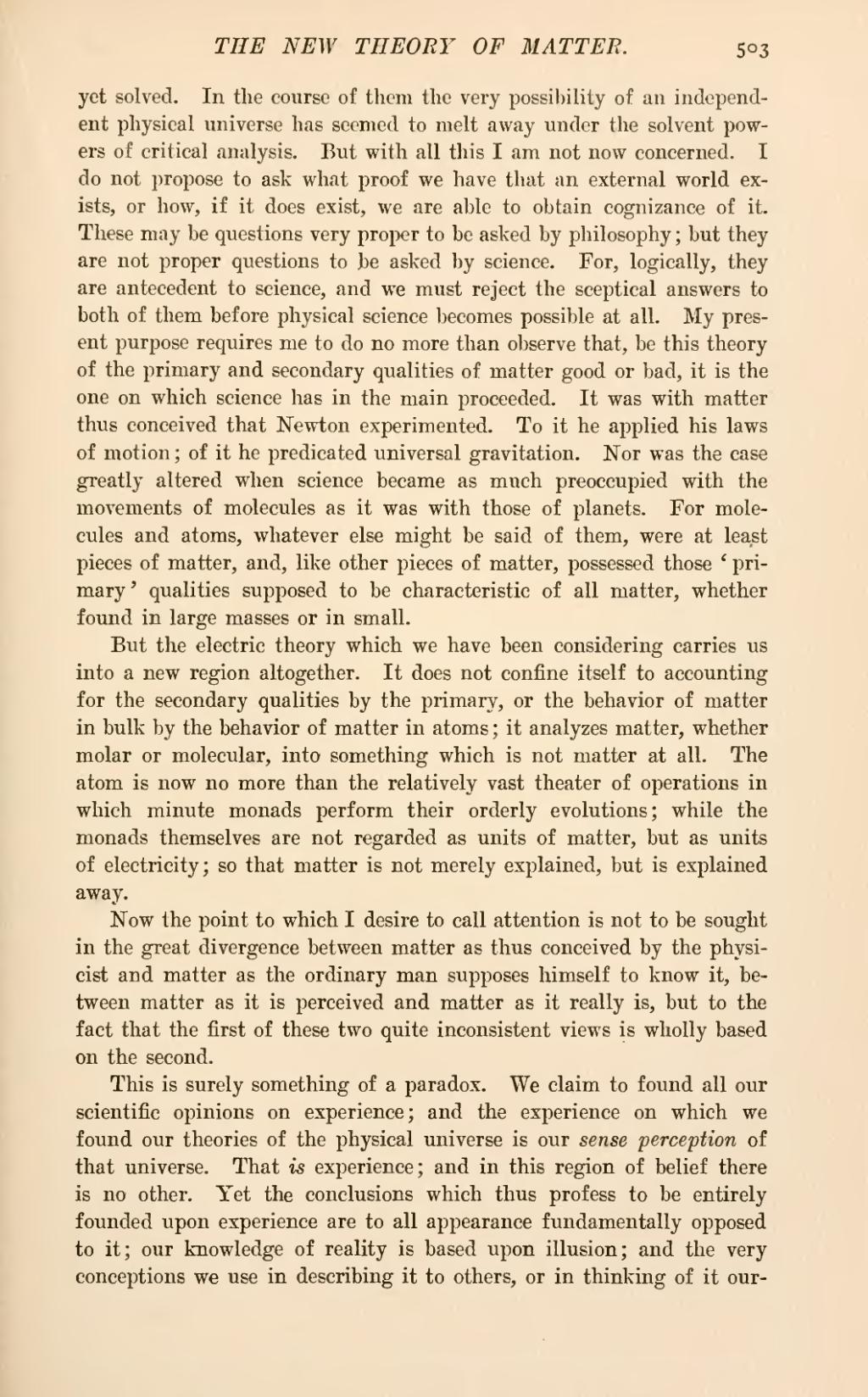yet solved. In the course of them the very possibility of an independent physical universe has seemed to melt away under the solvent powers of critical analysis. But with all this I am not now concerned. I do not propose to ask what proof we have that an external world exists, or how, if it does exist, we are able to obtain cognizance of it. These may be questions very proper to be asked by philosophy; but they are not proper questions to be asked by science. For, logically, they are antecedent to science, and we must reject the sceptical answers to both of them before physical science becomes possible at all. My present purpose requires me to do no more than observe that, be this theory of the primary and secondary qualities of matter good or bad, it is the one on which science has in the main proceeded. It was with matter thus conceived that Newton experimented. To it he applied his laws of motion; of it he predicated universal gravitation. Nor was the case greatly altered when science became as much preoccupied with the movements of molecules as it was with those of planets. For molecules and atoms, whatever else might be said of them, were at least pieces of matter, and, like other pieces of matter, possessed those 'primary' qualities supposed to be characteristic of all matter, whether found in large masses or in small.
But the electric theory which we have been considering carries us into a new region altogether. It does not confine itself to accounting for the secondary qualities by the primary, or the behavior of matter in bulk by the behavior of matter in atoms; it analyzes matter, whether molar or molecular, into something which is not matter at all. The atom is now no more than the relatively vast theater of operations in which minute monads perform their orderly evolutions; while the monads themselves are not regarded as units of matter, but as units of electricity; so that matter is not merely explained, but is explained away.
Now the point to which I desire to call attention is not to be sought in the great divergence between matter as thus conceived by the physicist and matter as the ordinary man supposes himself to know it, between matter as it is perceived and matter as it really is, but to the fact that the first of these two quite inconsistent views is wholly based on the second.
This is surely something of a paradox. We claim to found all our scientific opinions on experience; and the experience on which we found our theories of the physical universe is our sense perception of that universe. That is experience; and in this region of belief there is no other. Yet the conclusions which thus profess to be entirely founded upon experience are to all appearance fundamentally opposed to it; our knowledge of reality is based upon illusion; and the very conceptions we use in describing it to others, or in thinking of it our-

